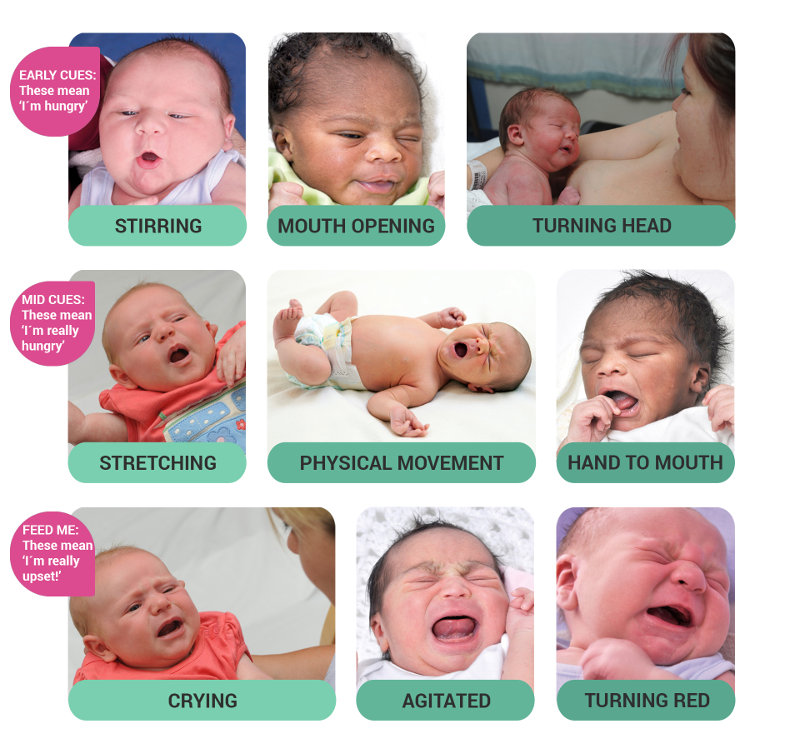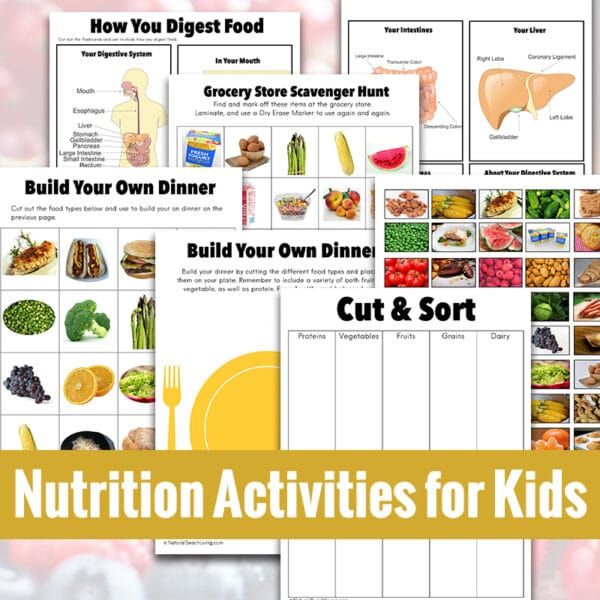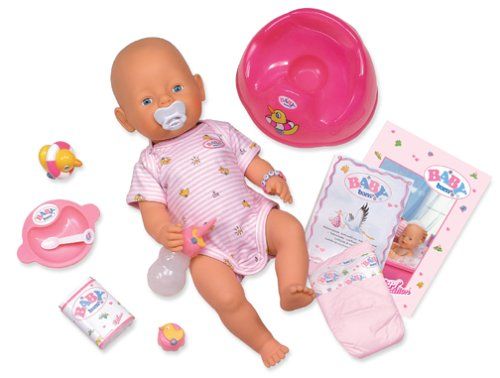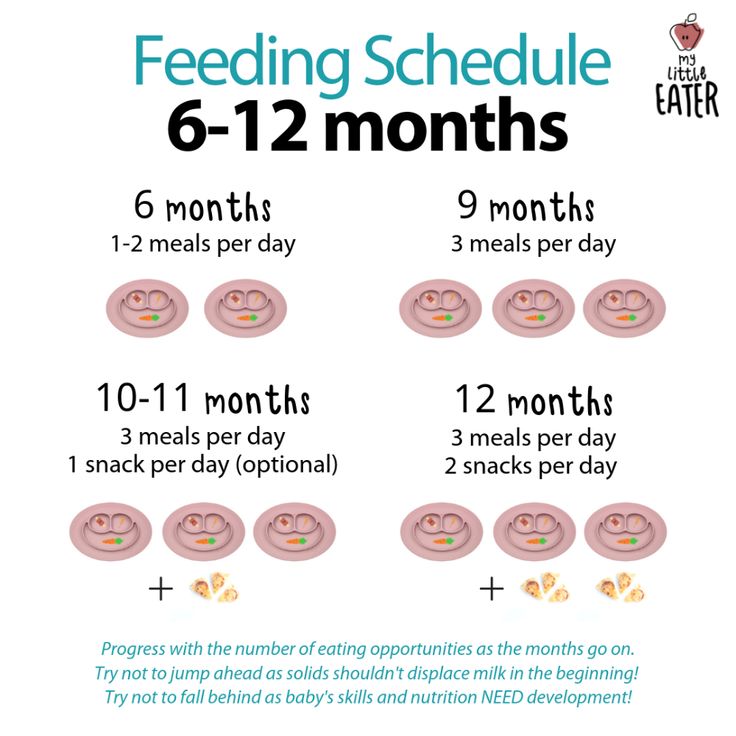Sleep and feed routine for babies
Baby Sleep and Feeding Schedules By Age
A proper baby sleep schedule can help your baby sleep better at night and take better naps. This page has sample sleep schedules including feedings for babies and toddlers at different ages. As a sleep consultant for over 15 years, it’s important for you to know there is no one-size-fits-all schedule that works for every baby. Use these as a guideline to find the right schedule for your baby!
What Age Can You Put Your Baby on a Schedule?
You can put your baby on a sleep schedule almost from birth but it’s important not to be too strict until your baby is at least 6 months old. Newborns need to eat and sleep on demand to support a rapid period of growth and development. Once your baby can tolerate staying awake for 2-3 hours at a time, a more consistent schedule can be used.
Even if your baby is young, you can put your baby on a schedule largely based on their “nap gap.” This is the amount of time between sleep periods, including the time between naps and between their last nap and bedtime.
Sample Baby Sleep and Feeding Schedules By Age
Here is a list of our free sample baby sleep and feeding schedules, for your convenience. We strongly recommend you bookmark this page and the sample schedule pages below.
Keep in mind that newborn schedules are generally much more variable than older children’s schedules. A baby doesn’t really get on a clock-based schedule until 6 months old, on average, though some are naturally more predictable than others. Some older babies and toddlers can struggle with schedules that are too rigid to the clock, so you will want to use what you know best about your own baby or toddler to adjust your schedule to fit his or her personality and temperament. If you need help with a personalized sleep and feeding schedule, we can help you there, too!
Newborn Schedules
Newborns need between 14 and 17 hours of sleep in a 24-hour period and can stay awake 1-2 hours at a time, on average. An early bedtime doesn’t form until around 8-12 weeks old, on average. Before then, you will want to keep bedtime later around 9 or 10 p.m. like yours. Otherwise, your baby might start the day too early.
- Newborn Day / Night Confusion Explained
- Newborn Sleep Patterns, Growth Spurts, and Schedules Up to 8 Weeks Old
- Newborn Schedules By Week Up To 16 Weeks Old
- 2 Month Old Baby Sleep Schedule and Development
- 3 Month Old Baby Sleep Schedule and Development
- Eat-Play-Sleep: Pros and Cons
- >How to Get My 2, 3, or 4 Week Old To Sleep
You may also be interested in…
- When Can I Put My Baby on a Schedule?
- How To Put Your Baby On a Nap / Sleep Schedule
- Feed on Schedule or Feed on Demand?
Baby Schedules
Babies 4 to 10 months old need an average of 14 hours of sleep a day with 11-12 hours at night and 2-3 hours during the day. Many babies night-wean in this age range but it varies depending on whether you’re breastfeeding or formula-feeding. Each schedule below will discuss what to expect for babies at that age.
- 4 Month Old Baby Sleep Schedule
- 5 Month Old Baby Sleep Schedule
- 6 Month Old Baby Sleep Schedule
- 7 Month Old Baby Sleep Schedule
- 8 Month Old Baby Sleep Schedule
- 9 Month Old Baby Sleep Schedule
- 10 Month Old Baby Sleep Schedule
You may also be interested in…
- Wake Windows By Age Chart
- Night Feedings by Age and When Do You Night-Wean?
- Schedules for Breastfeeding and Formula-Fed Babies
- How Rigid Should Your Baby’s Sleep Schedule Be?
Toddler Schedules
Toddlers need 13-14 hours of sleep a day with 10-12 hours at night and 2-3 hours during the day. The average age to transition to one nap is 15-18 months old though quite a few 13-14-month-olds will, too. And, the average age to stop napping is 3-4 years old.
- 11 Month Old Baby Sleep Schedule
- 12 Month Old / 1 Year Old Toddler Sleep Schedule
- Why Not All 12 Month Olds Transition To One Nap
- When Do Babies Drop to One Nap? 5 Signs to See Before Switching
- Toddler Sleep Schedules By Month — From 12 Months to 3 Years Old
- 3 Signs Your Toddler Is Ready To Stop Napping
Custom Baby and Toddler Sleep Schedule Maker for VIPs
Use our schedule maker to get a custom sleep schedule that’s based on your child’s age and usual morning wake-up time! Use this in combination with our sample schedules above to create the perfect schedule for your little one. With an age range that spans 4 months to 3+ years, our schedule maker is one you will want to come back to again and again as your child grows!
In addition, we know that feeding and sleep go hand-in-hand, and you may wish to see feeding times woven into your sample schedule. We provide a robust schedule maker, including extended wake-time options AND suggested feeding times for babies and toddlers of all ages, in our VIP Members Area. To access our full-service schedule maker, become a VIP member today! You’ll receive instant access to the VIP-only schedule maker, as well as access to e-books, audio courses, case studies, weekly chats with a sleep consultant, “ask the author” on any page, and more!
You may also be interested in…
- Schedules for Breastfeeding and Formula-Fed Babies
- How Rigid Should Your Baby’s Sleep Schedule Be?
- Sibling Series Part 2: Juggling Different Baby and Toddler Sleep Schedules
- Sibling Series, Part 3: How To Maintain Twins and Multiples Sleep and Feeding Schedules
Need Baby and Toddler Sleep Help? We Have the Resources You Need!
If you are tired of wading through stacks of baby sleep books that just aren’t working, if you are beyond exhausted and just can’t solve your child’s sleep problems on your own…than personalized sleep consulting is for you. Our team of expert consultants will create a Personalized Sleep Plan® just for your family and then support you through every step of implementing your plan. We encourage you to consider our personalized, one-on-one baby and toddler sleep consultation packages if you want to see real, meaningful results now. Your consultation package also includes ample follow-up help, designed to help you troubleshoot problems and tweak your plan as needed.
Or, join our VIP Members Area packed with exclusive content and resources: e-Books, assessments, detailed case studies, ask the author, live chat with a sleep consultant, and more. It costs less to join than buying products separately!
About Nicole
Nicole Johnson is the founder and lead sleep consultant of The Baby Sleep Site®. Since she began in 2008, and with the help of her team of sleep consultants, she has helped over 40,000 families improve their sleep. She has also held a position on the board of the International Association of Child Sleep Consultants (IACSC) since 2015. Millions of visitors land on The Baby Sleep Site each year, and Nicole and her team are here to find solutions for your family’s sleep problems that will match your baby’s temperament and your parenting style.
Learn More
Newborn Baby Feeding and Sleep Schedule
When you understand your newborn’s sleep patterns and habits, you can start to establish a little more structure in your daily life and build a little more confidence in your decisions and actions during the baby’s first days.
While newborns can’t stay on a strict sleep or feeding schedule – mostly due to their many growth spurts in these early months – these sample newborn sleep and feeding schedules can guide you through these stages and make sure everyone is getting the sleep and nutrition they need.
Otherwise, you may be soothing a crying baby all day.
A newborn baby cries a lot more when they are over-tired, not sleeping enough, or hungry. In other words, getting him or her on a routine (even if it’s not a strict schedule) can be a life-saver!
Your newborn’s feeding schedule should be age-appropriate, and you should never withhold food from a newborn just to stay on schedule. A newborn sleep schedule is also often based on how long your baby can stay awake (not strictly by the clock), which is usually short in the newborn days.
Keep reading to discover what you can do to get started.
Skip to the schedules
Understanding Newborn Sleep Patterns
A baby is considered a newborn from birth until about 3 months of age.
During this period, your newborn’s sleep patterns will look nothing like yours.
Your baby will sleep in short bursts – anywhere from 30 or 45 minutes to 3 or possibly 4 hours – and then eat between periods of sleep.
In other words, the typical day/night sleep cycle doesn’t really apply to newborns. Some newborns come out of the womb with their days and nights completely mixed up!
This is called day/night confusion, and babies who struggle with it tend to sleep a lot during the day and then wake up frequently at night.
Many newborns also seem extra sleepy in the first week or two after birth and must be woken up to feed or drift off while feeding before getting their fill.
Eventually, though, your newborn will definitely “wake up” within three weeks after birth. This is when you will start to deal with more wakefulness. In fact, you may start to miss the early weeks of having a super-sleepy newborn!
Babies simply cry more often as they get a bit older (depending on temperament), but you will quickly learn how to soothe a crying baby.
Working with Newborn Feeding Schedules
Newborns feed very, very frequently, but this isn’t a problem that needs to be solved.
It’s perfectly natural!
Your newborn’s tummy is quite small. They simply need to fill it up regularly.
Formula-fed newborns may need to eat slightly less often than breastfed newborns because it takes a newborn’s tummy longer to digest and break down formula.
So babies tend to feel fuller for longer periods of time. Breast milk, on the other hand, is digested fairly quickly.
How much breastmilk or formula does your baby need?
Every situation is different, of course, but if your baby is formula-fed, you can use a fairly simple formula to determine approximately how many ounces your baby needs in a day.
Simply multiply your baby’s weight by 2.5.
For example, an 8-pound baby would need about 20 ounces of formula in a 24-hour period.
If your baby is breastfed, the general rule is that most newborns need between 20 and 30 ounces of breastmilk (and between 25-35 ounces once they’re past the newborn stage).
How often should you feed your baby?
In general, if you are exclusively nursing, it’s best to nurse on demand in the first few weeks after birth to ensure that your milk supply becomes well-established. In fact, in order to maintain your supply, you’ll need to nurse every 2 to 3 hours, on average.
Once your baby is past 3 months of age and is in the infant stage, that will slowly stretch into 5-6 hours, and then 7-8, and eventually right up to 10 or 11 hours once your baby is 9 months old or 10 months old.
Newborn Growth Spurts
Believe it or not, a lot is going on with your newborn baby.
So much growth and development is happening in that little body! Your newborn will very likely go through growth spurts at the following times:
- 7-10 days of age
- 2-3 weeks of age
- 4-6 weeks of age
- 3 months of age
During these growth spurts, it will feel like your newborn is feeding almost constantly (and like when she’s not feeding, she’s sleeping). This is 100% normal – feed your newborn as often as she needs it, as the extra nourishment is important during the growth spurt.
How to Create a Newborn Feeding and Sleep Schedule
Your unique newborn’s wake times and total sleep needs may vary from what is recommended below.
These schedules are based on averages, but your baby may need more or less sleep (or shorter/longer wake times) than what is listed here.
Remember, watch your baby’s sleepy cues closely (rubbing eyes, yawning, staring off into space, etc.), and let those guide the sleep schedule.
Remember, too, that if your baby is already fussing, he or she is already overtired. Try to get your child down for his or her nap earlier next time, before the fussing starts.
This schedule is best for babies who consume average amounts of breast milk and for moms who have average breast milk production and storage amounts.
| 9:00 AM | Wake and Feed* |
| 10:00 AM | Nap (30-60 minutes) |
| 11:00 AM | Wake and Feed |
| 12:30 PM | Nap (30-60 minutes) |
| 1:30 PM | Wake and Feed |
| 3:30 PM | Nap (30 – 60 minutes) |
| 4:30 PM | Wake and Feed |
| 6:00 PM | Nap (30 – 60 minutes) |
| 6:30 PM | Wake and Feed |
| 7:30 PM | Catnap (20 – 30 minutes) |
| 8:00 PM | Wake and Feed |
| 9:30 PM | Catnap (20 – 30 minutes) |
| 10:00 PM | Wake and Feed |
| 11:30 PM | Feed and Bedtime* |
| 3:30 AM | Feed and Right back to sleep |
| 6:30 AM | Feed and Right back to sleep |
* – We recommend you make these fixed points in your baby’s schedule. You can read more about this in our article on fixed points in a baby schedule.
Babies who eat smaller amounts, babies with reflux, and moms who produce and store smaller amounts of breastmilk will need a different schedule. So will babies who eat larger amounts per feeding and moms who produce/store greater amounts of breast milk.
Schedules for those scenarios, as well as schedules for older, breastfed newborns, are available in our newborn book, Essential Keys To Your Newborn’s Sleep.
2-8 Week Old Newborn, Formula FeedingThis schedule recommends longer naps and fewer feedings than the breastfeeding schedule above, simply because formula is more difficult for baby to digest. So, babies tend to feel fuller longer and therefore need slightly fewer feedings.
| 9:00 AM | Wake and Feed* |
| 10:00 AM | Nap (60 – 90 minutes) |
| 11:30 AM | Wake |
| 12:30 PM | Feed and Nap (30 – 60 minutes) |
| 1:30 PM | Wake |
| 3:00 PM | Feed and Nap (60 – 90 minutes) |
| 4:30 PM | Wake and Feed |
| 6:00 PM | Nap (30 – 60 minutes) |
| 6:30 PM | Wake |
| 7:30 PM | Feed and Nap (30 – 60 minutes) |
| 8:30 PM | Wake |
| 9:30 PM | Nap (30 – 60 minutes) |
| 10:00 PM | Wake and Feed |
| 11:30 PM | Feed and Bedtime* |
| 4:30 AM | Feed and Right back to sleep |
| 7:30 AM | Feed and Right back to sleep |
* – We recommend you make these fixed points in your baby’s schedule. You can read more about this in our article on fixed points in a baby schedule.
For formula-feeding schedules for older newborns, see our newborn book, Essential Keys To Your Newborn’s Sleep.
Additional Newborn Sleep ArticlesWant more newborn sleep tips? Check out our other newborn sleep articles:
- 7 Gentle, Natural Ways To Help Your Newborn Sleep Better
- How Much Your 1-Month Old Baby Should Sleep
- Establishing Healthy Sleep Habits In Your Newborn (Members Area tele-seminar)
- 10 Tips To Help Your Newborn Sleep
- What You Should Know About Newborn Sleep Patterns
- Essential Keys to Your Newborn’s Sleep (Members Area digital book)
- Why Newborns Are Fussy In The Evening (Besides Colic)
- Your Top 5 Breastfeeding + Sleep Questions Answered by an Expert (Members Area article)
Want FREE sleep help that you can put to use right away? Download a copy of our free guide, 5 Ways To Help Your Child Sleep Through The Night! The guide is available to download instantly, which means you can start using the techniques in it as early as tonight. So download now, and learn why your baby is waking at night – and what you can do about it.
Click here to learn more about how to get your free guide.
A better night’s sleep could be just a few clicks away. So don’t wait – download now, and start your journey to better sleep tonight!
Daily routine for a child under 1 year old
Daily routine is a system for distributing periods of sleep and wakefulness, meals, hygiene and health procedures, activities and independent human activities throughout the day.
Compliance with a rational daily routine corresponding to the age characteristics of the child contributes to his healthy growth and development. Getting used to performing various types of activities at the same time, the child is prepared for the upcoming type of activity at every moment of time, which ensures their easier and faster implementation. Compliance with the correct daily routine provides a good mood for the child and maintains a keen interest in the study of the world around him, contributing to his normal motor and psychoverbal development.
The child's daily routine includes the following obligatory elements: diet, time spent outdoors during the day, frequency and duration of sleep, mandatory classes to develop skills in accordance with age, free time.
In the first months after birth, a healthy newborn baby sleeps for most of the day, since all external stimuli are very strong for the nervous system of a child, accustomed to a cozy intrauterine environment, and cause its rapid exhaustion. As the child grows older, the duration of sleep gradually decreases and the time of wakefulness increases.
| Age | Daytime sleep mode | Night sleep | Wake mode |
| From birth to 2 months | 6 x 2.5 hours | 6 hours | During feeding |
| 2-4 months | 5 times 2-2.5 hours | 6.5 hours | 4 x 1.5 hours |
| 4-6 months | 4-5 times for 2 hours | 7 hours | 4 times 2 hours |
| 6-9 months | 3-4 times for 1. | 8 hours | 4 x 2.5 hours |
| 9-12 months | 2 x 1.5-2 hours | 9-10 hours | 4 times for 3-4 hours |
Closely related to the sleep-wake mode is the feeding mode of the baby. The sleep of a child in the first months of life is very sensitive and is easily disturbed under the influence of various extraneous stimuli, including hunger.
| Age | Mode | Example |
| From birth to 2 months | 7-8 times, every 3 hours | 6,9,12,15,18,21,24 (no night feeding) |
| From 2 to 6 months | 6-7 times, every 3.5 hours | 6, 9.30, 13, 16.30, 20, 23.30 (without night feeding) 6, 9.30, 13, 16.30, 20, 23.30, 03 (with night feeding) |
| From 7-12 months | 5 times, every 4 hours | 6,10,14,18,22 |
A child's stay in the fresh air is essential in the daily routine. The total duration of stay in the open air for children under 1 year of age should be at least 5-6 hours a day. Fresh air has a calming effect on the baby, improves metabolic processes, and increases the body's defenses. In the summer, all games and activities should be held outdoors; in the cold and transitional seasons, two one-time walks of 1.5-2 hours are provided.
Fresh air also has a beneficial effect on sleep. By acting on the skin and mucous membranes of the nose and upper respiratory tract, it provides a faster fall asleep of the child and a higher quality of sleep. Sleeping outside can replace a walk, especially during the cold season.
The child's daily routine is generally individual, but ideally, one should strive to ensure that the child eats after waking up, and then stays awake until the next sleep. A well-slept baby eats with appetite and then calmly and actively plays or engages, and tired of games, easily goes to sleep.
When your baby is awake, try to keep him active and cheerful. It is necessary to dress the child in loose clothing that does not hinder movement, provide access to toys appropriate for his age, and most importantly, actively participate in games and activities with the baby as a whole family.
Author - Physiotherapist - DMITRIENKO T.G.
Sleep and wakefulness schedule of a newborn baby, baby sleep table by months
10/15/2018
74
Maria, four-month-old Vladik's mother, sleeps fitfully at night - most often sitting on a rocking chair and holding Vladik in her arms. The baby is difficult to put down - immediately crying, arching. This has been going on for a whole month and it is not known how long it will last - up to 6 months, up to a year? It is said that children at the age of three begin to sleep on their own in their beds. But what to do before the cherished three years? Let's figure it out!
The reason for Vladik's difficulty falling asleep is the baby's wrong sleep pattern. Tantrums to fall asleep, the inability to put the child to bed, frequent nocturnal awakenings and early rises are the result of an improper sleep and wakefulness regimen for infants and grown-up children.
The child does not get enough rest, becomes overtired and therefore cannot sleep soundly. Therefore, if you are faced with the problems described, it is worth adjusting the child's regimen, taking into account his age and physiological needs.
NEWBORN BABY SLEEP MODE
Up to four months it is difficult to talk about some clear sleep and wakefulness pattern for a newborn baby. In the first 4 months after birth, the child goes through neurological "growing up" and adjustment of "sleepy" processes.
The sleep schedule for babies is something like this:
- In the first few weeks of life, a newborn can sleep from 17 to 20 hours a day. It is important to monitor the time of wakefulness, that is, the time between sleeps of the baby.
This includes feeding, getting ready for bed, and getting to bed. Up to two months, the waking time is no more than 75 minutes.
- From 2 to 4 months, sleep is reduced to 14-16 hours a day. And the time of wakefulness, on the contrary, increases to 90 minutes. Even a 5-10 minute binge can cause short dreams and frequent awakenings of the child.
- Up to 3 months, daytime naps can be 20-30 minutes or, conversely, 2-4 hours. In each case, at this age, this is the norm. A baby's naps will begin to lengthen to 40-60 minutes after 3 months, and their number will decrease to 3-4.
Extend your newborn's sleep with rocking, breastfeeding, nipples, strollers. It is advisable to alternate each method of calming the baby so that there is no habit of one of them in the future.
If the previous sleep was still short, the time spent awake until the next sleep should also be reduced by at least 15 minutes.
To set your newborn's internal clock, take your newborn out to bright daylight often and dim the lights at night. In the future, this will help to establish a sleep and wakefulness pattern for the baby.
BABY'S SLEEP SCHEDULE after 4 months
The sleep and wake patterns of an infant after 4 months will be clearer with wake up at 06:00-07:00 am and early bedtime between 18:00-20:00 pm.
In physiological mode, daytime naps should be arranged at the intervals: 08:00-10:00, 12:00-14:00 and 15:30-17:00. During these periods of time, the hormonal background of the child changes - there is a peak in the production of the sleep hormone melatonin. Body temperature drops, metabolic processes in the body slow down. All this contributes to an easier transition from the state of wakefulness to sleep.
To find the right bedtime, be guided by the norms of wakefulness of the baby at each age.
To do this, use the table with the child's sleep schedule by months:
The table shows the average norms, for your baby they may be a little more or a little less. Also, the wake time in the morning and evening will be shorter than the daytime wake time. Be sure to watch your baby for signs of fatigue. Until 4-6 months, focus on them so as not to miss the time of easy laying.
SLEEPING AND FEEDING OF THE CHILD
Feeding the baby in the first months of life is based on the demand of the child. During this period, the mother is lactating, and the more often the baby is on the breast, the more prolactin "channels" will open. Therefore, the sleep and feeding schedule of a newborn baby will be different every day.
By 4 months we organize feeding around dreams. Most often, the baby eats to wake up and fall asleep, to calm down, or just when he wants to visit his mother.
Sleep and feeding regimen at night by months:
- Up to 3-4 months, we feed the baby 2-4 times for 12 hours of night sleep.
- Babies 5-7 months require 1-2 feedings per night.
- By 10-12 months, most babies, regardless of type of feeding, can sleep through the night without waking up for feedings.











